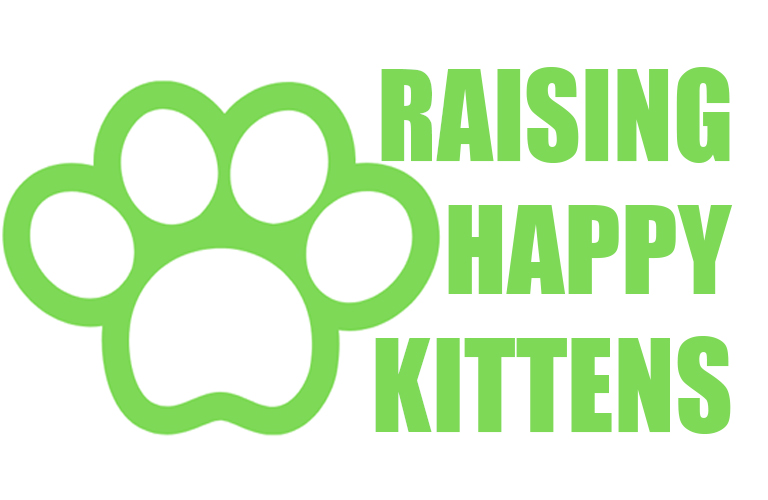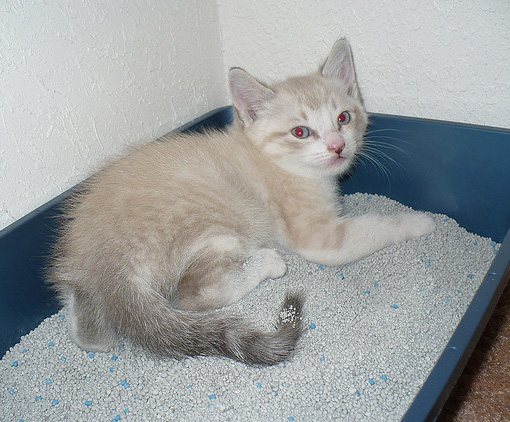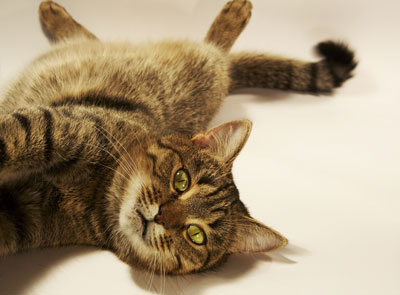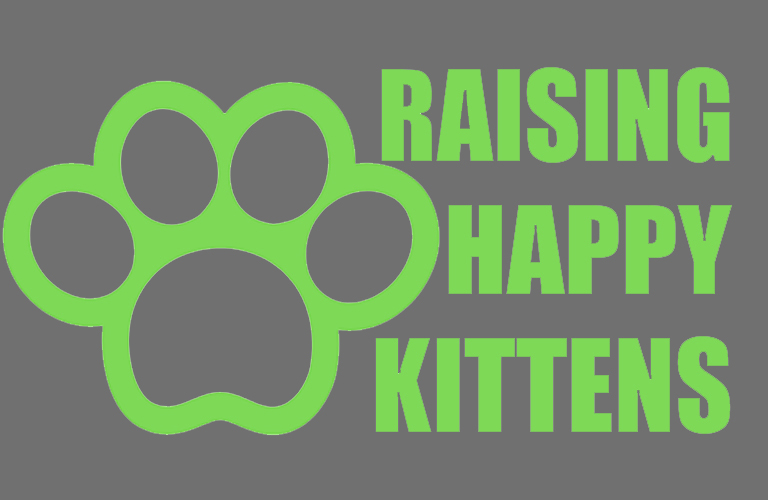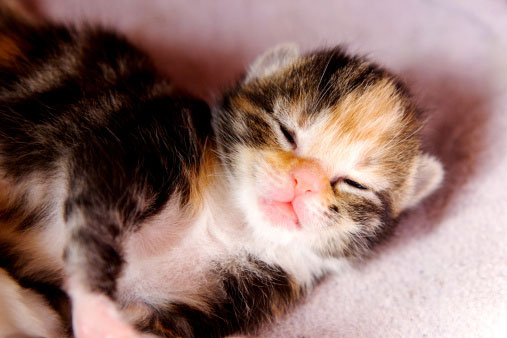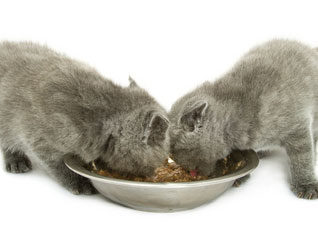(Continued from Kitten Development Part 1: Newborn to 1 Month)
1 MONTH Development: Many mother cats will have their litters fully weaned by this this stage of kitten development, and will be able to eat solid (but soft) kitten food.
Mom may choose to occasionally let her kittens nurse, so let mom do what she thinks is best for her kittens!
They are able to control their body temperatures by this phase of kitten development without mom’s help. They also no longer have to be “pottied” by mom and can control their own urination and defecation.
They will become acquainted with the litter box, but it will take some time for them to catch on to its purpose–they will just think it’s a new place to play!
The little kittens may even eat some litter to see how tasty it is, but should soon catch on. A safe alternative to clay litter is a pellet litter like Yesterday’s News.
Keeping their critical socialization period in mind, make sure to be around the kittens and hold them often. Get them used to being picked up and having their ears, teeth and paws looked at.
6 WEEKS: Let the party begin! Between 5 and 6 weeks old is when all the kittens’ cuteness and zaniness just explodes all over the living room!
Kitten proofing is now a must during this development stage to protect them from dangerous objects, and also to protect your treasured possessions!
At this kitten development stage, they will have all of their baby teeth in and will begin to learn social play with their siblings. As fun as it is to watch, play is also very important during kitten development.
They are learning to hunt by stalking and pouncing on each other, and they are learning
that their little teeth and claws hurt when their playing turns into tiny little yowls of pain!
Kittens “play nice” with their siblings when they learn how to prevent exposing their claws or biting too hard when wrestling.
6 Weeks is also when their big blue eyes will begin to change color–or not!
At this kitten development stage, they should be fairly consistently using the litter box.
Be patient if you have some slow learners, and NEVER rub their noses in accidents!
Just place them gently in the litter box after every meal, and you can even hold their leg and scratch the litter with it to help them with their litter box training.
Kitten Development 6 Weeks to 8 Weeks
By now, the kittens are testing the limits of their balance, coordination, speed, and climbing abilities.
If you haven’t been doing so already, get the little kittens used to the hustle, bustle, and noises of the human household.
While physical handling is key in making a kitten human-friendly, kittens will be much more confident adults if they are not so easily frightened by strange sounds.
So let them hear, see and smell the vacuum cleaner, dishwasher, garbage disposer, cat-friendly dogs, supervised children and toddlers, guests, television, music, and laughter.
The more exposure they get, the more easily the kittens will transition into their new homes with confidence and curiosity instead of anxiousness and fright.
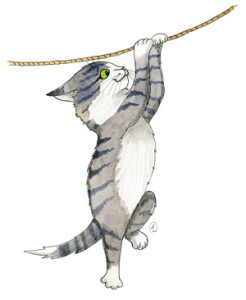
The immunity the kittens received from their mother’s milk in the first crucial days of life begins to wane during this stage of kitten development, and it is time to schedule their first veterinary visit for vaccinations and parasite testing.
This is also a good time to consider getting the kittens spayed and neutered.
The kittens now are completely weaned, but not yet ready to go to new homes. While a 6 to 8 week old kitten can be separated from his mother and siblings, 10 to 12 weeks is recommended.
Although nutritionally independent, there is still a lot of learning-how-to-be-a-cat that goes on during this stage of kitten development.
Kitten Development 8 Weeks to 6 Months
The kittens are adjusting to their independence, but if they have been socialized properly then they will still be enjoying friendly chats and plenty of cuddles with their owners frequently!
Between 2 and 4 months, the kittens should be gaining about a pound per month.
By 10 to 12 weeks they should be in their forever homes and adjusting to life without their litter mates.
They are still learning the ropes when it comes to testing their physical limits, and accidents can happen at this kitten age due to misjudgments when jumping or climbing.
At 14 weeks they will have their adult teeth in, but they should remain on kitten food until they are a year old.
Kitten Development 6 Months to 1 Year and Beyond
At 6 months, a kitten’s immune system matures.
Also, he is or soon will be developing sexual maturity.
People tend to forget that their kittens are growing up, and think that motherhood and fatherhood cannot even be possible for such a young cat!
That is why spaying and neutering before this age is so important.
When they reach a year old, a kitten should be slowly transitioned to eating adult cat food, which has more fiber and less fat than kitten food.
Although technically speaking no longer a kitten, a 1-year-old cat still has some growing and development ahead of him.
It will take 18 months to 2 years for him to “grow up” and develop into his adult personality, and another couple of years to reach his full weight–Even longer for some breeds, like Maine Coons.
And if you did a good job raising this kitten, then you set the stage for him to become a wonderfully happy cat and loving family member for years to come!
